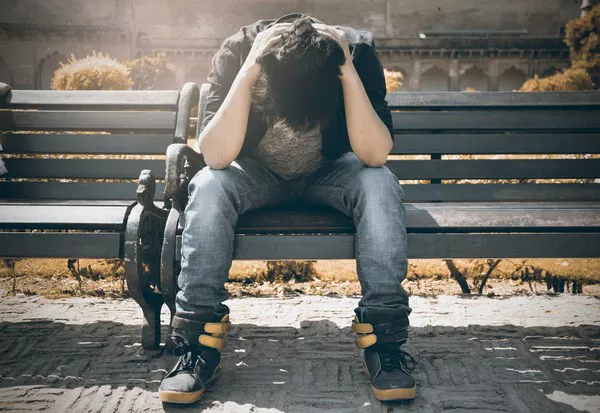Loneliness is a complex and pervasive emotional experience characterized by a subjective feeling of social isolation or lacking meaningful connections with others, even in the presence of people. While it’s natural to experience occasional feelings of loneliness, chronic or prolonged loneliness can have profound psychological effects on individuals’ well-being. In this article, we delve into the psychological effects of loneliness, exploring its impact on mental health, cognitive function, self-esteem, and physical health.
The Psychological Effects of Loneliness
Loneliness can exert a significant toll on individuals’ psychological well-being, contributing to a range of negative effects:
1. Increased Risk of Mental Health Problems:
Loneliness is strongly linked to higher rates of depression, anxiety, and other mental health conditions. Feelings of isolation and disconnection can exacerbate existing mental health issues and contribute to a sense of despair or hopelessness.
2. Negative Impact on Cognitive Function:
Chronic loneliness can impair cognitive function, leading to difficulties with memory, concentration, and decision-making abilities. The cognitive effects of loneliness may manifest as forgetfulness, foggy thinking, or decreased cognitive flexibility.
3. Increased Stress and Inflammation:
Loneliness triggers physiological stress responses, leading to elevated levels of stress hormones such as cortisol. Prolonged exposure to loneliness can also result in chronic inflammation, which has been linked to various physical and mental health problems.
4. Sleep Disturbances:
Loneliness is associated with sleep disturbances, including insomnia, fragmented sleep, or poor sleep quality. Individuals experiencing loneliness may struggle to fall asleep or stay asleep, leading to daytime fatigue and impaired functioning.
5. Lowered Self-Esteem and Self-Worth:
Chronic loneliness can erode self-esteem and self-worth, leading to feelings of worthlessness or social inadequacy. Individuals may internalize negative beliefs about themselves, leading to a cycle of self-criticism and low self-esteem.
Impact on Physical Health
In addition to its psychological effects, loneliness can also have significant implications for physical health:
1. Increased Risk of Chronic Diseases:
Loneliness is associated with a higher risk of developing chronic diseases such as cardiovascular disease, stroke, and hypertension. The stress and inflammation associated with loneliness can contribute to the development and progression of these conditions.
2. Weakened Immune System:
Loneliness can suppress immune function, making individuals more susceptible to infections and illness. Chronic loneliness has been linked to impaired immune responses, slower wound healing, and increased susceptibility to viral infections.
3. Increased Mortality Risk:
Research suggests that loneliness is a significant predictor of premature death, with lonely individuals experiencing higher mortality rates compared to their socially connected counterparts. The detrimental effects of loneliness on physical health contribute to this increased risk of mortality.
Coping with Loneliness
While loneliness can be challenging to overcome, there are strategies individuals can employ to cope effectively:
1. Building Social Connections:
Actively seek out opportunities to expand social networks and forge new connections. Join clubs or groups, volunteer in the community, or participate in social activities that align with your interests and values.
2. Strengthening Existing Relationships:
Nurture and deepen connections with family and friends by prioritizing quality time together, engaging in meaningful conversations, and expressing appreciation for one another. Regular communication and shared experiences strengthen bonds and foster a sense of belonging.
3. Developing Self-Compassion:
Practice self-compassion and self-care to counteract the negative effects of loneliness on self-esteem and self-worth. Treat yourself with kindness and understanding, and engage in activities that promote self-nurturance and well-being.
4. Seeking Professional Help:
If feelings of loneliness persist or significantly impact mental health and well-being, don’t hesitate to seek support from a therapist or counselor. Therapy provides a safe space to explore feelings of loneliness, develop coping strategies, and work through underlying issues contributing to loneliness.
5. Online Communities and Support Groups:
Explore online communities and support groups that offer connection and support for individuals experiencing loneliness. Virtual platforms provide opportunities to connect with others who share similar experiences and offer empathy, understanding, and encouragement.
Conclusion: Nurturing Connection in the Face of Loneliness
Loneliness is a deeply human experience that can have profound psychological and physical effects on individuals’ well-being. By understanding the psychological effects of loneliness and implementing coping strategies, individuals can navigate feelings of isolation and cultivate meaningful connections with others. Whether through building social networks, strengthening existing relationships, or seeking professional support, there are avenues for combating loneliness and fostering a sense of belonging and connection in one’s life.
Loneliness is a complex and pervasive emotional experience characterized by a subjective feeling of social isolation or lacking meaningful connections with others, even in the presence of people. While it’s natural to experience occasional feelings of loneliness, chronic or prolonged loneliness can have profound psychological effects on individuals’ well-being. In this article, we delve into the psychological effects of loneliness, exploring its impact on mental health, cognitive function, self-esteem, and physical health.
[inline_related_posts title=”You Might Be Interested In” title_align=”left” style=”list” number=”6″ align=”none” ids=”823,6820,6817″ by=”categories” orderby=”rand” order=”DESC” hide_thumb=”no” thumb_right=”no” views=”no” date=”yes” grid_columns=”2″ post_type=”” tax=””]
































